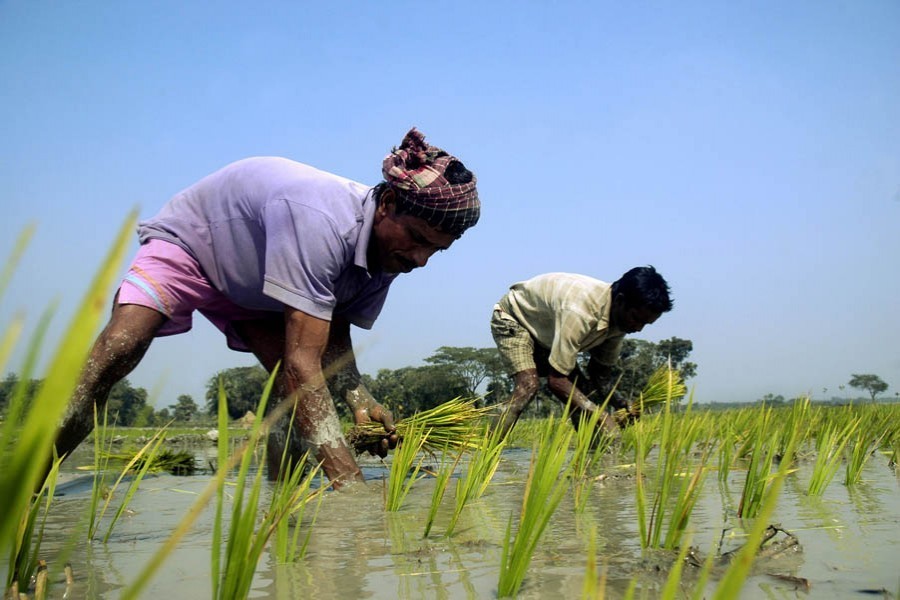Bangladesh won't directly co-sponsor an Indian proposal at the World Trade Organization (WTO) for subsidy cut in production of agricultural items in the developed world, officials said, as it involves twin bets on export and import.
The stand is taken as Bangladesh would not be the direct beneficiary of this motion that calls for rich nations not to provide product-specific amber-box support (AMS) exceeding de minimis limit (the threshold point below which the rate is insignificant).
Rather, Dhaka thinks about co-sponsoring the Indian proposal through the LDC Group (least-developed countries) and providing all-out support when discussion starts at the global trade forum.
The Ministry of Commerce (MoC) decided on such a position on agro-subsidy in a recent meeting after weighing the pros and cons of joining the battle directly as it may also cast negative impacts on Bangladesh's relations with the rich trade partners.
Since Bangladesh is deemed not a direct beneficiary of the proposed subsidy cutbacks, creating hostility wouldn't be expedient, officials said at the meeting.
India in its submission to the WTO said the developing members cannot provide product-specific AMS exceeding de minimis limit. On the other hand, developed members and some developing ones are not constrained by the de minimis limit.
This has provided significant flexibilities to these members to provide support to their agriculture, thereby distorting production and trade, Delhi deplored.
The proponent further says the developed members-countries provide significantly high amounts of subsidies compared to the value of production of the products concerned, concentrating the subsidies in a few products, and shifting the products in which the subsidies are concentrated.
The commerce ministry meeting noted that though reduction in subsidy by developed countries to their agriculture sector may result in price hike of farm produce, Bangladesh may not be affected that much. Bangladesh is now self-sufficient in rice production and the volume of import of rice is not significant. Import of other farm products is also not high.
Trade expert Dr Mostafa Abid Khan told the FE Tuesday that reduction in subsidy to the de minimis level by developed nations would not hurt the poor countries. Because, he argues, the subsidy levels for the poor countries would not be lowered due to the action.
"Lowering subsidy by rich countries would enhance competition on the global market, thus price will go down," he says about the ultimate gains and losses.
Regarding co-sponsoring Indian proposal, Mr Khan said becoming a party would not bring any benefit for Bangladesh and thus this is not necessary to become involved directly.
Director-General of commerce ministry's WTO Cell Hafizur Rahman says if the Indian proposal is accepted, there will have two types of implications for Bangladesh.
"Bangladesh's agro-product exporters will get higher prices," he says about one of the two prongs.
Also, as Bangladesh's farm-product imports from global market are not much higher, so the loss would not be significant.
Mr Rahman sees India's move as rational as some developed countries hand out excessive subsidy to their farmers, which distorts the product prices.


